Plastic Markets in the EU: Trends and Sustainability Initiatives
Plastic is an essential material used across all economic sectors due to its versatility. It's safe to say that it has changed how we live and is now an integral part of modern life, making many of the things we do today possible.
However, almost 26 million tonnes of plastic waste is generated in Europe every year. With the rise in the need for sustainable solutions, Europe has taken actions that will, in the long run, change how we use and produce plastic.
In this blog, we'll examine current trends in the plastic market in Europe.
Plastic Industry Statistics
To meet the ever-growing demand for plastic materials, global plastics production has soared in recent decades and, in 2019, hit an annual peak of 368 million metric tons.
As a key plastic-producing region, Europe accounted for 16 percent of production in the same year, with only China and North America producing more. Regarding plastic industry statistics, the turnover of the European showed a slight decrease compared to the previous year, mainly due to the impact of the COVID-19 crisis.
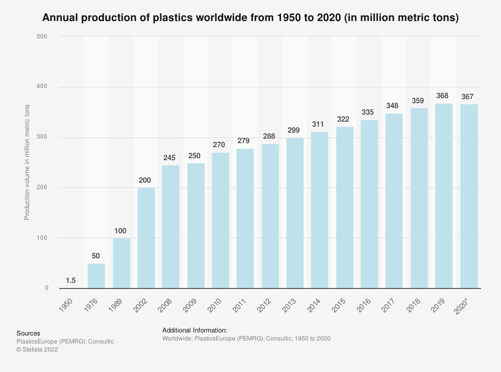
Trend No 1. – Increased Production of Biodegradable Plastics
Today, most biodegradable plastics are made of plant-based materials to allow for easy decomposition when disposed of. As marketing efforts in 2019 continued to bring awareness to the ever-increasing benefits of biodegradable plastics, this trend in plastics happens to be one of the major ones.
The biodegradable plastics market is projected to reach about $12.4B by 2027.
Since Jan 1, 2021, the EU has charged member states €0.80/kg of plastic packaging waste that is not recycled. States are free to choose how to finance the levy. More and more businesses continue to go "green."
Trend No 2. – Raised Demand for Reinforced Plastics
In 2019, reinforced plastics continued to become a reliable substitute for metals. They continue to become more popular in the medical, construction, and military industries.
The reinforced plastics market was valued at $228.4 billion in 2019 and is projected to reach $295.6 billion by 2027, with a CAGR of 4.1% from 2020 to 2027.
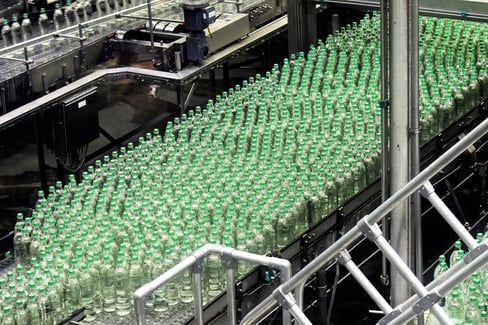
Plastics Trend No 3. – The Growing Use of 3D Printing (3DP) for Production Efficiency
The 3DP market continued a rapid growth trajectory, especially for hardware manufacturers. The market material is segmented into three core categories:
- Polymer (being the single largest in 2019),
- Metal (projected to lead over the forecast period),
- Ceramic.
The picture is brighter with European market plastics equipment suppliers. Thorsten Kühmann, Secretary-General of EUROMAP, Europe's Association for Plastics and rubber machinery manufacturers, said in March for the K Conference Trend Report that member companies' order books were “filled to the brim". The current year should see expected sales increase by 5 to 10%.
Plastics Trend No 4. – Expansion of Autonomous Production
Known as the "Fourth Industrial Revolution," 2019 saw the rise of smart technology that allowed manufacturers to implement more autonomous machines, increasing productivity and cutting costs. Engineers are able to interact with 3D models in real-time, immersive environments. These new "smart factories" help to reduce error rates and risks.
Plastics Trend No 5. – The Upturn in the Production of Recyclable Products
With an increase in the use of recyclable products to propel growth, the recycling rates and use of recycled materials in the European Union (EU) are steadily growing. Overall, the EU recycled around 55% of all waste, excluding major mineral waste in 2016 (compared with 53% in 2010).
This implies that Europe achieved an overall plastic recycling rate of 23.1%. That figure is most likely to rise as the plastics industry makes major investments in recycling technologies of diverse types.

Plastics Trend No 6. – Rise of Awareness Programs
More and more countries are facilitating awareness programs regarding the environmental effects of using plastics. The Zero Waste Europe program involving municipalities, companies, and citizens' groups is encouraging its members to commit to the elimination of residual waste, thereby ending landfill and incineration as waste management practices.
Plastics Trend No 7. – Frequent Use of Enhanced Plastic Packaging
Manufacturers are leaning on enhanced plastic packaging to minimize quality degradation and contamination. European polymer producers are making major efforts to improve the sustainability of their products.
Currently, high costs for energy are compressing plastic industry profits at the exact moment the industry needs additional funds to make decarbonization investments.
The Future of Plastic Market in Europe
Throughout and beyond what hopefully will be the temporary crises of COVID and Ukraine, the world remains firmly focused on circularity, plastic pollution, and environmental leakage. Industry players maintain that plastics still have a vital role in society and that their value can and should be boosted through improved circularity.
Thus, we invite you to learn more about your company's potential to expand into the European plastic market. Take a look at our Sales Outsourcing services, and feel free to schedule a meeting with us, as we will be more than happy to guide you through your European expansion.
Sources: Statista.com, GOV.UK, The Guardian, BBC Worklife
Category
Related articles
-
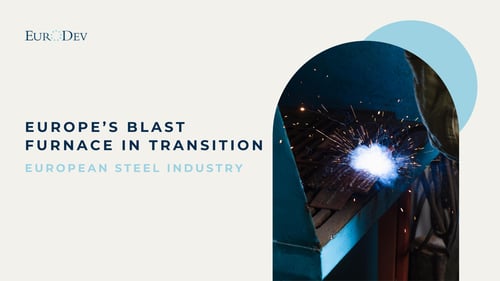
Beyond the Blast: Europe’s Furnace Transition
25 January 2024This article will explain why the blast furnace is now subject to a makeover, and what this...
Read more -
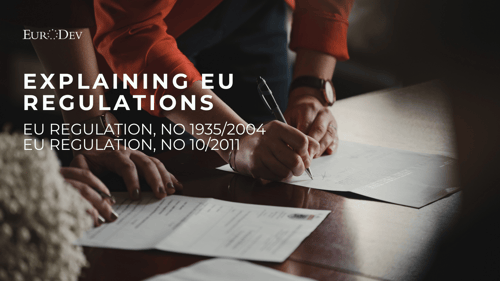
Navigating the Maze: European Regulations (Part II)
8 January 2024In this article, we will dive more specified into the Essential certifications for product that...
Read more -
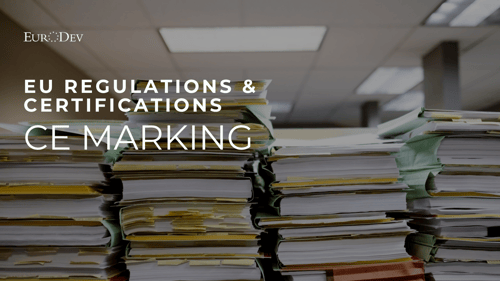
Navigating the Maze: European Regulations and Certifications
8 January 2024Today we will take you through the vital certifications and regulations companies must comply with...
Read more

